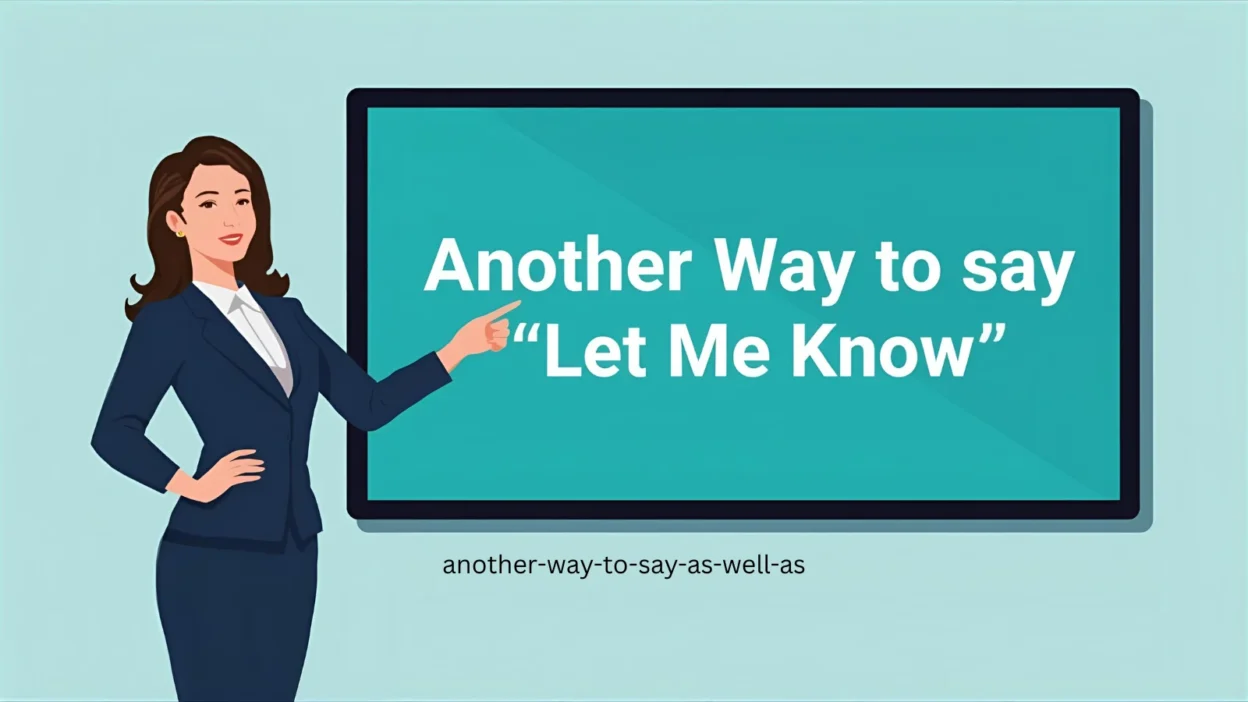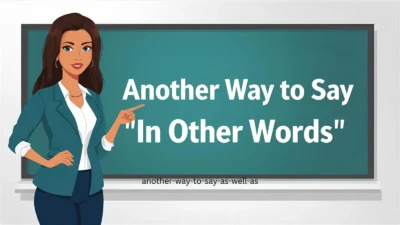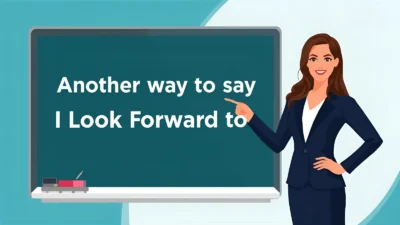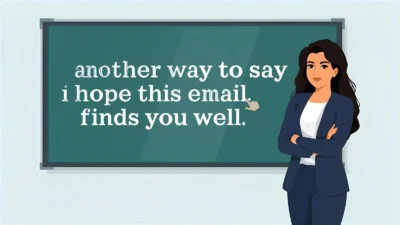The phrase “let me know” is widely used in emails, conversations, and messages to request information, updates, or feedback. It’s casual, clear, and polite, but when used too often, it may sound repetitive or less professional depending on the context. By choosing alternatives, you can tailor your message to fit the tone—whether it’s formal, friendly, or persuasive.
In this article, you’ll find 45 different ways to say “let me know” with meanings, explanations, usage examples, best contexts, and tone descriptions.
1. Please Inform Me
Meaning: Direct request for information.
Explanation: Formal and respectful.
Example: “Please inform me if the schedule changes.”
Best Use: Business writing, formal emails.
Tone: Polite, professional.
2. Keep Me Posted
Meaning: Ask for updates as things progress.
Explanation: Slightly informal but widely accepted.
Example: “Keep me posted about the meeting outcome.”
Best Use: Workplace communication, friendly emails.
Tone: Neutral, approachable.
3. Update Me
Meaning: Request for the latest information.
Explanation: Straightforward and concise.
Example: “Update me once the report is ready.”
Best Use: Work chats, semi-formal settings.
Tone: Direct, neutral.
4. Notify Me
Meaning: Ask to be alerted about changes.
Explanation: Formal and precise.
Example: “Notify me when the documents are signed.”
Best Use: Professional and legal contexts.
Tone: Formal, clear.
5. Get Back to Me
Meaning: Request for a reply.
Explanation: Common in everyday communication.
Example: “Get back to me with your thoughts.”
Best Use: Emails, work messages.
Tone: Neutral, conversational.
6. Drop Me a Line
Meaning: Informal way to ask for contact.
Explanation: Friendly and casual.
Example: “Drop me a line when you’re free.”
Best Use: Social, casual writing.
Tone: Friendly, relaxed.
7. Give Me a Heads-Up
Meaning: Request advance notice of something.
Explanation: Emphasizes early warning.
Example: “Give me a heads-up if the client arrives early.”
Best Use: Work chats, casual speech.
Tone: Informal, conversational.
8. Keep Me in the Loop
Meaning: Stay informed about updates.
Explanation: Collaborative and team-oriented.
Example: “Keep me in the loop on the project changes.”
Best Use: Workplace, team projects.
Tone: Professional but approachable.
9. Reach Out to Me
Meaning: Ask someone to contact you.
Explanation: Can be formal or casual depending on context.
Example: “Feel free to reach out to me with questions.”
Best Use: Networking, emails, teamwork.
Tone: Polite, flexible.
10. Contact Me
Meaning: Direct request to communicate.
Explanation: Simple and professional.
Example: “Contact me if you need further assistance.”
Best Use: Customer service, formal writing.
Tone: Neutral, professional.
11. Advise Me
Meaning: Ask for guidance or updates.
Explanation: More formal and specific.
Example: “Please advise me on the next steps.”
Best Use: Formal emails, legal/business contexts.
Tone: Formal, respectful.
12. Ping Me
Meaning: Informal way to request quick contact.
Explanation: Tech slang, casual but efficient.
Example: “Ping me when you’re online.”
Best Use: Work chats, informal emails.
Tone: Casual, modern.
13. Send Me Word
Meaning: Slightly old-fashioned but clear.
Explanation: Works well in creative or literary writing.
Example: “Send me word once the package arrives.”
Best Use: Creative writing, casual communication.
Tone: Neutral, literary.
14. Let Me Hear From You
Meaning: Ask for a response.
Explanation: More personal and warm than “let me know.”
Example: “Let me hear from you after the interview.”
Best Use: Friendly, personal communication.
Tone: Warm, conversational.
15. Keep Me Updated
Meaning: Ongoing request for new information.
Explanation: Flexible and commonly used.
Example: “Keep me updated on the situation.”
Best Use: Work and casual.
Tone: Neutral.
16. Don’t Hesitate to Tell Me
Meaning: Encourages open communication.
Explanation: Polite and supportive tone.
Example: “Don’t hesitate to tell me if you need help.”
Best Use: Supportive, professional emails.
Tone: Polite, reassuring.
17. Send Me an Update
Meaning: Ask for new information directly.
Explanation: Slightly more formal than “update me.”
Example: “Send me an update once the task is finished.”
Best Use: Workplace, reports.
Tone: Neutral, professional.
18. Loop Me In
Meaning: Add me to ongoing communication.
Explanation: Popular in business language.
Example: “Please loop me in on the client emails.”
Best Use: Corporate communication.
Tone: Professional, modern.
19. Give Me a Shout
Meaning: Very informal way of asking to be contacted.
Explanation: Casual and friendly.
Example: “Give me a shout when you’re nearby.”
Best Use: Friends, casual texts.
Tone: Informal, playful.
20. Shoot Me a Message
Meaning: Request a quick text or email.
Explanation: Relaxed and modern phrase.
Example: “Shoot me a message if you’re running late.”
Best Use: Casual work chats, personal communication.
Tone: Informal, approachable.
21. Alert Me
Meaning: Ask for immediate notice.
Explanation: More urgent than “notify me.”
Example: “Alert me if there are any errors in the file.”
Best Use: Work, urgent requests.
Tone: Serious, direct.
22. Fill Me In
Meaning: Ask for missing information.
Explanation: Informal, conversational.
Example: “Fill me in on what I missed during the meeting.”
Best Use: Workplace, casual conversation.
Tone: Neutral, friendly.
23. Pass It On to Me
Meaning: Ask to share information when available.
Explanation: Emphasizes receiving shared details.
Example: “Pass it on to me if you hear anything.”
Best Use: Informal, casual teamwork.
Tone: Friendly.
24. Let Me In On It
Meaning: Ask to be included in knowledge or plans.
Explanation: Playful but clear.
Example: “Let me in on it if you’re planning a surprise.”
Best Use: Casual, friendly speech.
Tone: Informal.
25. Relay the Information to Me
Meaning: Formal way to request communication.
Explanation: Suitable for professional settings.
Example: “Please relay the information to me once confirmed.”
Best Use: Official reports, business contexts.
Tone: Formal, professional.
Conclusion
The phrase “let me know” is handy, but it can feel repetitive. Depending on your audience, you can switch to formal options like “please inform me,” neutral ones like “keep me posted,” or casual ones like “shoot me a message.” Choosing the right alternative ensures your communication is clear, professional, and well-suited to the situation.



